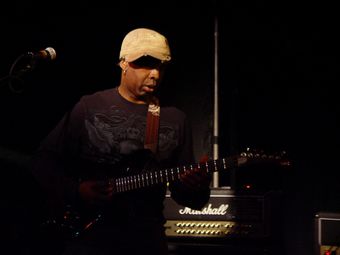Publikace, nahrávky a jiné výstupy
Přehled toho, co jsem napsal a zveřejnil (jako sociolog) nebo nahrál a vydal (jako muzikant). Prostě veřejně dostupné "výstupy". V případě, že je to právně a technicky možné, postupně sem dávám k dispozici i plné texty a do příslušných oddílů hudební sekce pak i nějaké hudební ukázky ve formátu mp3.
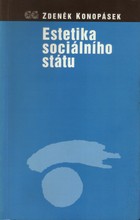
KONOPÁSEK, Z. (1998): Estetika sociálního státu: O krizi reprezentace (nejen) v sociálním zabezpečení. Praha: G plus G. 341 s.
::::The book challenges the usual views of the welfare state which seek to explain its current difficulties in terms of economics, politics or ethics. Instead, it prefers the perspective which I call "welfare state aesthetics". By this term I mean a study of welfare institutions as a kinds of texts representing social phenomena that are to be coped with. These texts should be studied relatively independently of their authors' convictions or wishes as well as of social scientists' objective knowledge of the phenomena. The title term "aesthetics" indicates that it is presumed that realism of these institutional texts is based on artful illusion-making and on processes of translation from one text to another rather than on the mimetic mirroring of "real life". In the book, I use such a perspective for an analysis of social security benefit schemes. Benefit formula are seen and analyzed as texts that representing, in some way, the reality of "income insufficiency". It is argued that in the postmodern era, the universalism of these texts increasingly undermines their realism and vice versa. The tension between universalism and realism is at the core of what I mean by the term crisis of representation in social security. The representation crisis, of course, affects a wide range of social texts ranging from biographical constructions of identity to scientific constructions of truth. Thus, some aspects of the welfare state crisis may be understood against precisely this wider context.
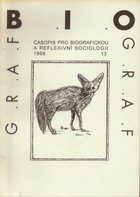
ATKINSON, P. / SILVERMAN, D. (1998): Kunderova Nesmrtelnost: Interview society a vynalézání Já. Biograf , (13): 1-25 - přeložili Lukáš Gjurič a Zdeněk Konopásek
, (13): 1-25 - přeložili Lukáš Gjurič a Zdeněk Konopásek
::::Milan Kundera[a]s novel Immortality bears a dose relation to con temporary social science debates about the production of the self. Commentators like Kleinman and Mishler seem to have introduced a new version of authenticity based on a reinvention of the Romantic subject with the interview (as the medium) and the narrative (as the content) portrayed as the means for constructing and sharing biographical experience. Unlike such contemporary Romantics, Kundera examines how the subject is constructed in literary biography and mass media "imagology". The authors show how Kundera[a]s work leads in two possible directions: an analysis of the interview society and a concern with strategies for the invention of the self. By locating styles of the self, the authors reveal lively and skillful biographical work, overlooked by cultural critique and not reducible to any structural determinism.
ATKINSON, P. / SILVERMAN, D. (1997): Kundera's Immortality: The interview society and the invention of the self, Qualitative Inquiry, 3 (3): 304-325
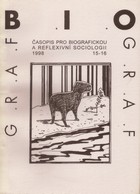
MOSER, I. / LAW, J. (1998): Přechody snadné, přechody nesnadné: o heterogenní ekonomii subjektivity. Biograf , (15-16): 5-28 - přeložil Zdeněk Konopásek
, (15-16): 5-28 - přeložil Zdeněk Konopásek
::::This text explores the relation between subjectivities, materialities (including technological arrangements) and bodily competencies. Starting from the assumption that all material and bodily arrangements are specific, it considers some of those specifities, and the "passages" through which these specific arrangements are fitted together for a particular person, Liv, who is physically disabled. It explores the character of some Liv[a]s "passages" - some are "good", some "bad", some public, and some discrediting - and the ways in which they are shaped to produce personal and biographical continuity and relative autonomy for her - an autonomy and capacity discretionary decision making which she highly values. The paper thus uses some of the tools developed in the actor-network approach, but also in feminism, to interpret the material and corporeal relations involved in the formation of contemporary subjectivities.
MOSER, I. / LAW, J. (1999): Good passages, bad passages. In: J. Law, J. Hassard, editors: Actor network theory and after. Oxford: Blackwell & Sociological Review. Str. 196-219
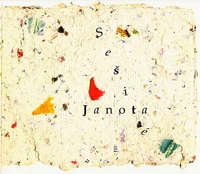
OLDŘICH JANOTA (1997): Sešité. CD, Indies Records [MAM024-2]
::::"Písničkář Oldřich Janota na novém albu Sešité jemně přinutí posluchače uvědomit si, že poezie i hudba se vyvinuly z magických obřadů dávnověku. Janota se stále více noří do oživování nejniternějších pocitů, tak těžko polapitelných a tak hluboce oslovujících - když se to povede. Jeho hlavní básnickou zbrojí jsou přírodní motivy: stromy, řeka, mraky, skály, les, květy a jejich barvy; ty hrály v Janotově poetice odjakživa významnou roli (...) Snad nejzajímavějším poznatkem z tohoto alba je posun Janoty jako interpreta: od deklamace textů přešel k melodiím a zpěvu. Sešité má dvě roviny. Po několika obdobích hraní s fascinujícími hudebními tělesy v minulosti je spojení Oldřicha Janoty s dalšími hudebníky vždycky vzrušující záležitostí. Vynalézavá, melodická hra na bicí (v tvorbě skupin Půlnoc, Domácí kapela či Despondancing) se stala v devadesátých letech českou specialitou - na desce Sešité ji nezaměnitelně předvádí i Zdeněk Konopásek. Působivé trio, schopné pohybovat se od skočného renesančního zvuku až po moderní vážnou hudbu, tu doplňuje violistka Veronika Hánová. V jedné skladbě zazní klavír dávného Janotova přítele a spoluhráče Luboše Fidlera. Pět písní, natočených na zámku v Hukvaldech jen za doprovodu kytary a větru, se hudebně od předchozí desky už tolik neliší. Snad lze jen říci, že více než deset let práce na adaptování minimalistických a repetitivních rytmicko-harmonických vzorců pro kytaru stále přináší své čerstvé a lahodné ovoce. I když to třeba pokaždé nejsou plné sklady. Album Sešité je zprávou o nikdy nekončícím hledání Oldřicha Janoty. Klobouk dolů." (A. Neuman, MF Dnes, 13.5.1997) [hudební ukázky zde]
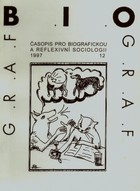
FISCHER-ROSENTHAL, W. (1997): Problémy s identitou: biografie jako řešení některých (post)moderních dilemat. Biograf , (12): 1-18 - přeložil Zdeněk Konopásek
, (12): 1-18 - přeložil Zdeněk Konopásek
::::Přeloženo z původního článku: FISCHER-ROSENTHAL, W. (1995): The problem with identity: Biography as solution to some (post)modernist dilemmas. Comenius, (15): 250-265
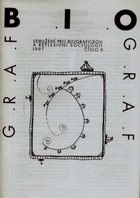
KONOPÁSEK, Z. (1997): Text a textualita v sociálních vědách: Třetí část - reflexivní impuls. Biograf , (9): 7-15
, (9): 7-15
::::

KONOPÁSEK, Z. (1997): Co si počít s počítačem v kvalitativním výzkumu: program ATLAS/ti v akci. Biograf (12): 71-110
(12): 71-110
::::
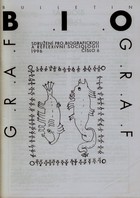
ANDRLE, V. (1996): Muži na svém místě: legitimizační témata v autobiografickém vyprávění elitních podnikatelů s minulostí "starých struktur". Biograf Bulletin, (6): 17-27 - přeložil Zdeněk Konopásek
::::Based on a business élite subsample of biographical interviews, the article explores the ways in which respondents who had had high executive positions in the communist state sought to imbue that fact as well as their post-revolutionary wealth acquisition with a sense of post-revolutionary legitimacy. a) They dissociated themselves from the communist regime by claiming that oppressive power was located in other offices than the ones they occupied; b) they presented their careers as ones which enabled them to accumulate expertise relevant to doing well in the market economy; c) they presented themselves as ancestrally linked to the first-republic bourgoisie and personally connected with the current (supposedly liberal-democratic) government; d) they drew on the collective memory of previous revolutions to dismiss their militant critics.
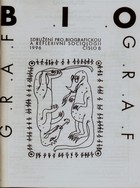
KONOPÁSEK, Z. (1996): Text a textualita v sociálních vědách: Druhá část - metodologické motivace. Biograf , (8): 9-23
, (8): 9-23
::::
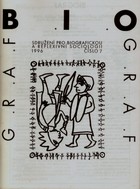
KONOPÁSEK, Z. (1996): Text a textualita v sociálních vědách: První část - teoretické motivace. Biograf , (7): 33-45
, (7): 33-45
:::: 